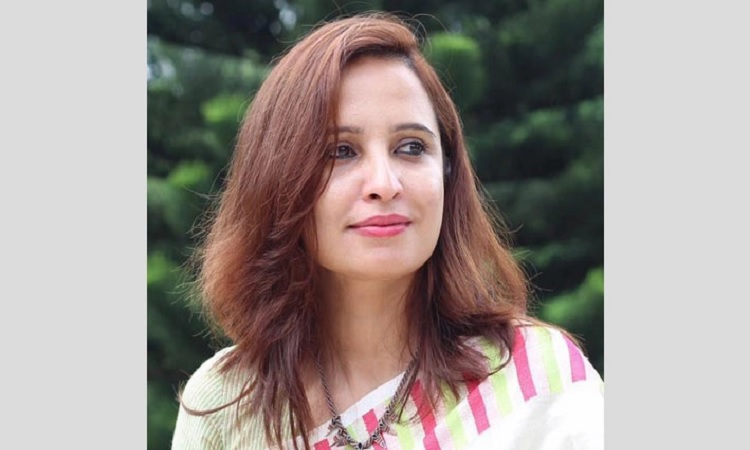

Just couple of days ago, the BNP hurled petrol bomb on the Mohanganj Express train to disrupt the 2024 general elections, in which four people, were burned to death. Throughout the last month of 2023 nearly 270 buses were set on fire. After continuous mass communication and distribution of leaflets calling for vote boycott, the BNP has planned a nationwide strike around the January 7 elections. The strike will start from the day before the polls and will end the next morning including the polling day. Jamaat has also separately called for a 48-hour strike starting from Saturday. Other allies of the BNP in the anti-election movement will also hold the same program.
The BNP’s interest in conspiratorial and violent politics is nothing new. The 21st August grenade attack, militancy across the country, attacks on minorities before and after almost every election indicates that the BNP has been trying to turn the politics of Bangladesh in the opposite direction. After the 2001 elections, the BNP carried out indiscriminate violence against Awami League workers and tortured religious minorities across the country in an unprecedented manner. Using petrol bombs and arson the goons of the BNP-Jamat set fire to more than 400 primary schools, which were used as polling stations, to disrupt the 2014 elections. Between 2013-15, nearly 500 people were burned to death, 3500 were injured and 813 vehicles were torched by the BNP-Jamaat.
Elections are the foundation of democratic politics and participation in elections is one of the goals of healthy political practices. Democracy works only when the people have the right to freely and voluntarily choose and vote for their representatives. The Constitution of Bangladesh guarantees the right of citizens to elect their representatives through voting according to their own choice. Article 7(1) and 11 of the Constitution recognizes its citizens as the supreme power holders. Article 122 of the Constitution and Section 7 of the Electoral Roll Act, 2009 guarantees the right to vote to every citizen above the age of 18 years.
Any political party has the right to decide whether to participate in the election or not, but no political party has the right to prevent the participation of the voters through terrorist activities, intimidation of violence or imposing strike on election day to boycott the election. Averting or obstructing voters in the way is an interference with personal liberty. Voters are the main driving force in elections. Every citizen of the state has equal suffrage to elect representatives of the people in national and local elections. Right to vote is a civil right like other rights including food-clothing-shelter. According to political scientist Willoughby, in a democracy the right to vote is a valuable right and also an important responsibility. This right of the citizens is considered as a fundamental right. Voting is compulsory for citizens in many countries. In Australia citizens are fined for not voting in elections. If one is not interested to vote, then the same should be informed to the election authority in advance. There is no such provision in our country, so it is up to the voter to vote or not.
According to Section 171A of the Penal Code-1860, franchise means the right of a person to vote or abstain from voting. Hence, one cannot be prevented from voting or one cannot be forced to vote. According to Section 171C of the Penal Code, whoever voluntarily interferes or attempts to interfere with the free exercise of any electoral right commits the offence of undue influence at an election. Therefore, if someone threatens to harass the voter or any member of his family or wants to damage his property to force him to vote or not to vote, it will come under the purview of undue influence. According to Section 171F of the Penal Code, such undue influence is a punishable offence. Under Section 77 of the Representation of the People Order, 1974, a person is guilty of undue influence, if he makes or threatens to make use of any force, harm in order to induce or compel any person to vote or refrain from voting.
BNP-Jamaat’s strike is aimed at disrupting the elections and obstructing the normal movement of voters by creating panic among mass people. The 48-hour strike called by BNP-Jamaat is intended to hinder voter participation in the elections. Those who have witnessed BNP-Jamaat atrocities in previous elections may get scared or discouraged from going to polling stations because of their strike. It is unlawful to attempt to obstruct the voting of voters by calling such strikes and creating panic. According to the existing laws of Bangladesh, it is a crime to try to prevent someone from voting, to discourage them not to go to the polling station by intimidation or threat to harm.
One of the main responsibilities of the state is to ensure the right to vote and thereby promoting democracy and political consciousness of every citizen. The relationship of the citizen with the state, demands that the state shall take action if a person or group interferes with the fundamental right of the citizen to vote. If BNP-Jamaat or any evil force undermines the security and constitutional rights of the citizens or prevents the exercise of the rights, we expect the Bangladesh State to ensure the rights and protection of the citizens by taking effective measures.
Dr. Farzana Mahmood (Bar-at-Law), Lawyer and researcher
বিবার্তা/এসবি
সম্পাদক : বাণী ইয়াসমিন হাসি
এফ হক টাওয়ার (লেভেল-৮)
১০৭, বীর উত্তম সি আর দত্ত রোড, ঢাকা- ১২০৫
ফোন : ০২-৮১৪৪৯৬০, মোবা. ০১৯৭২১৫১১১৫
Email: [email protected] , [email protected]